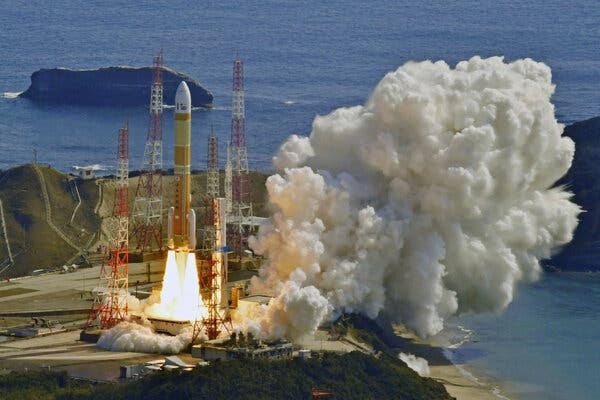Japan celebrates successful launch of next-generation H3 rocket

Japan’s space agency achieved a significant milestone on Saturday with the successful launch of its next-generation flagship rocket, marking a triumphant moment after years of delays and two prior unsuccessful attempts.
The H3 rocket, touted as a potential rival to SpaceX’s Falcon 9, holds promise for delivering cargo to lunar bases in the future. Hiroshi Yamakawa, president of the Japan Aerospace Exploration Agency (JAXA), expressed profound elation and relief, emphasizing the historic nature of the achievement.
The launch, conducted from the Tanegashima Space Center in southwestern Japan at 9:22 am (0022 GMT), elicited cheers and applause from the JAXA control center as the live stream confirmed the successful ignition of the H3’s engines, signaling its entry into orbit. Developed collaboratively by JAXA and Mitsubishi Heavy Industries, the H3 represents a significant advancement over its predecessor, the H-IIA launch system, boasting attributes such as high flexibility, reliability, and cost performance crucial for maintaining Japan’s autonomous access to space.
Unlike the reusable Falcon 9, the H3 is expendable, yet its innovative first-stage engine technology holds promise for enhancing thrust and cost-effectiveness, potentially revolutionizing space exploration. Michele Trenti, director of the Melbourne Space Laboratory at the University of Melbourne, underscored the H3’s potential to democratize access to the solar system through its cost-effectiveness.
Despite encountering setbacks, including ignition issues and technical glitches in previous attempts, the successful launch of the H3 on Saturday marked a pivotal moment for Japan’s space ambitions. The rocket carried two microsatellites—one aimed at disaster prevention through imaging capabilities and the other equipped with sensors to monitor factory operations on the ground. Confirmation of the microsatellites’ successful separation further validated the mission’s success, according to JAXA officials.
Associate Professor Alice Gorman, an expert in space exploration at Flinders University, highlighted the versatility of the H3, capable of launching satellites into Earth orbit, servicing space stations, and facilitating lunar missions.
The successful launch not only enhances JAXA’s standing in the global space community but also underscores Japan’s commitment to advancing its space exploration capabilities, despite occasional setbacks. Adrian Michael Cruise, an honorary professor of astrophysics at the University of Birmingham, emphasized Japan’s aspirations for challenging major players in space exploration, underscoring the critical role of powerful launch vehicles like the H3 in realizing these ambitions.












